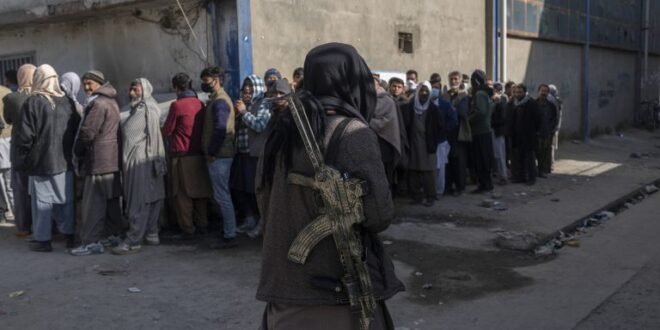The Taliban takeover has decimated the gains of the past twenty years achieved by Afghans—against tremendous odds—in the spaces of education, women’s rights, and civil society engagement.
With no embassy and no forward presence on the ground in Afghanistan, Washington’s leverage to impact events has been significantly reduced.
Among a range of human security concerns, there is still the possibility that Afghanistan will once again descend into a safe haven for violent extremist organizations and terrorist groups.
More accountable aid delivery and, on some level, engagement with the Taliban are necessary in order to prevent looting and ensure that the aid is delivered to the intended recipients.
The Taliban takeover of Afghanistan has decimated the gains of the past twenty years achieved by Afghans—against tremendous odds—in the spaces of education, gender rights, and civil society engagement. The humanitarian risks already felt and looming spell disaster, especially for the country’s most vulnerable populations. There are a host of critical challenges facing Afghanistan, and few believe the Taliban are capable of meeting these challenges. Families are reportedly so desperate that parents have attempted to sell their own children in exchange for money to buy food. Now, with winter approaching and Afghans facing a widespread humanitarian crisis, fueled by food shortages and economic calamity, the situation has grown dire. Even with now limited influence, the U.S. government has been engaging with the Taliban for the past several years and should be able to communicate the sense of urgency necessary to ensure that large numbers of Afghans receive the humanitarian assistance required to prevent the loss of human life. Meanwhile, the international community remains divided over the issue of whether to help the Taliban address critical shortcomings, concerned that even as assistance is intended to benefit the Afghan people, one byproduct is legitimizing the Taliban politically. Furthermore, international sanctions targeting the Taliban, without a humanitarian exemption, continue to significantly contribute to the liquidity crisis and inflation affecting inadequate food access and debilitating aid efforts.
Therein, the United States is struggling to deal with the consequences of its shambolic withdrawal and bungled evacuationof Afghanistan that began unfolding in mid-August. With no embassy and no forward presence on the ground in Afghanistan, Washington’s leverage to impact events has been significantly reduced. The U.S. vastly underestimated the reach of the Taliban throughout the country, and poor U.S. intelligence meant that the Biden administration had little grasp on how extensively the Taliban had infiltrated cities, towns, and villages. Throughout most of the negotiations presided over by the U.S. government in Doha, the talks themselves were disconnected from what was happening on the ground in Afghanistan.
More accountable aid delivery and, on some level, engagement with the Taliban are necessary in order to prevent looting and ensure that the aid is delivered to the intended recipients. The issue of governance in Afghanistan should remain the critical long-term focus for the international community, beyond immediate life-saving humanitarian assistance. There has been tremendous brain drain following the Taliban takeover, and the middle class that did remain in Afghanistan is struggling to survive and find employment. At the same time, the Taliban has been unable to deliver basic services. Even its own fighters are not being paid, leading more of the militants to prey on the population and engage in extortion and other criminal activities. Drug production remains a booming business for the Taliban. There have been reports of atrocities throughout the country, including stonings, beheadings, and the torture of individuals linked to the previous government. In turn, the Islamic State Khorasan (IS-K) is gaining fuel for recruitment, if for no other reason than the jihadists provide an alternative to the Taliban.
Among a range of human security concerns, there is still the possibility that Afghanistan will once again descend into a safe haven for violent extremist organizations and terrorist groups—with serious implications both for protection of civilians and global jihadist terrorism. While many focused initially on the threats posed by the Taliban and a resurgent and protected al-Qaeda in Afghanistan, there is now increased concern about the security threat posed by IS-K. The current conflict dynamics in Afghanistan have led some senior U.S. government officials to openly muse about cooperation with the Taliban in countering IS-K. The Taliban have so far failed miserably at counterinsurgency, leaving them open to challenge, first, on their jihadist credentials and, second, on their credentials as governing authorities. Meanwhile, the U.S. government is floundering on developing a coherent strategy for Afghanistan, unable to discern how Washington could work with a government whose leadership includes members of the Haqqani Network, designated by the U.S. as a foreign terrorist organization.
 Eurasia Press & News
Eurasia Press & News



